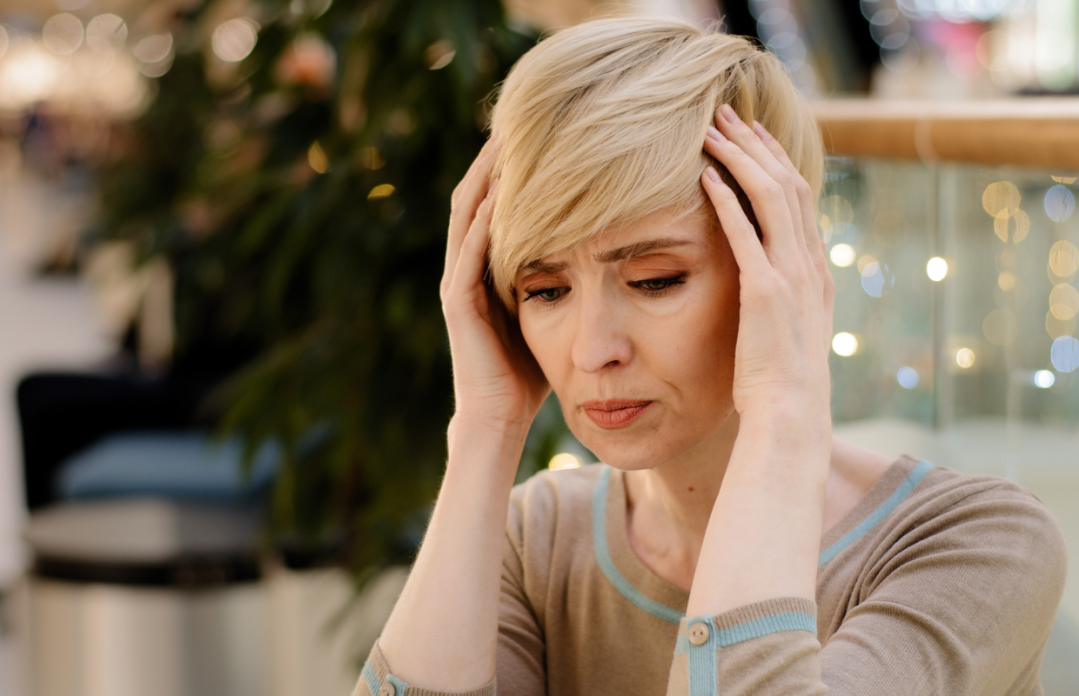Menopause and memory: how hormones affects the brain
Discover how menopause affects your brain and memory - and how to cope with these changes...

Author Kate Muir talks us through how menopause impacted her memory, brain and emotions, before sharing her top tips on finding the light at the end of the tunnel and feeling your best along the way…
Nowadays, I think of perimenopause as menopause’s dastardly little sister: a mean girl that puts you down when you least expect it, when your career and family life are at their fullest. But when it hit me, in my late forties, I had no idea what perimenopause was – nor did I know about its mind-bending properties.
When the loving, nurturing hormone oestrogen leaves your brain as well as your body, and progesterone also ebbs and flows, you are prey to strange mood swings. Or, in my case, dramatic rage.
How menopause affects your emotions
I’d never been an angry person, but during perimenopause, coping with three teenage children, a full-time job as a film critic, and a mother living with Alzheimer’s disease, I threw the following items at the kitchen wall: a butternut squash, broccoli, blue poster paint, a full butter dish and a copy of Nigella Christmas.
No one was injured, and I think the dog actually treated me with more respect afterwards. But the vegetable tossing was a sign that I could no longer handle my multitasking life and the menopause.
Until perimenopause and menopause hit, I thought I could cope with anything. I thought I knew just what to expect: Periods stop. Full stop. And whatever you do, don’t take HRT! But I was so wrong I wrote a book about it, and eventually made a documentary with Davina McCall: Sex, Myths and the Menopause.
What quickly became clear was that menopause is as much in your head as it is in your body. When the three key female hormones – oestrogen, progesterone and testosterone – behave erratically in perimenopause, and start draining away towards menopause, there is a feeling of being puppeted by forces outside of your control.
Hormones play good cop, bad cop: soothing then abandoning, depriving you of sleep, breaking you down. Like many perimenopausal women, I became extremely anxious, waking before dawn with heart palpitations, filled with unnameable fear, and the sweaty broken sleep added to my exhaustion.

Menopause and memory
I kept on running, without resorting to hormones. But one day I was making a shopping list and thought ‘I must shave my legs’ and wrote down ‘shaver’; I could not remember the word ‘razor’. Having just watched my mother lose the ability to remember nouns, as Alzheimer’s increasingly affected her, I was terrified.
I made the decision to go to the doctor and got body-identical HRT – oestrogen, progesterone and testosterone. Within a few weeks, my memory came back, I calmed down, and my hot flushes disappeared forever. I was clearly not one of those women who sail through menopause. I needed my own hormones back – for mental health and brain power.
Why are we all so ill-informed about this? As the psychotherapist and writer Susie Orbach puts it: ‘The menopause arrives, seeking out our vulnerabilities like a guided missile, just as we need all our strength to cope with daily life.’
Why we need to talk about menopause
My world eventually got back on track, and I changed jobs, partners and lifestyle. I fell in love with a man who didn’t drink, and I gave up alcohol. As a result, I felt more energetic in the mornings. Plus, the bags under my eyes went from extra-large to medium. I didn’t realise, like many women, that my changing menopausal liver was struggling to process the prosecco.
It hasn’t been simple, but my passage through midlife’s magnificent sh*t show has been an education, which both put me in my place and helped me understand how tough that place is for others. We all need to talk together about menopause.
Kate Muir is the author of Everything You Need To Know About The Menopause (But Were Too Afraid To Ask) (Simon & Schuster, £16.99)
More inspiration: 5 reasons to feel positive about the menopause
Words: Kate Muir | Images: Shutterstock









